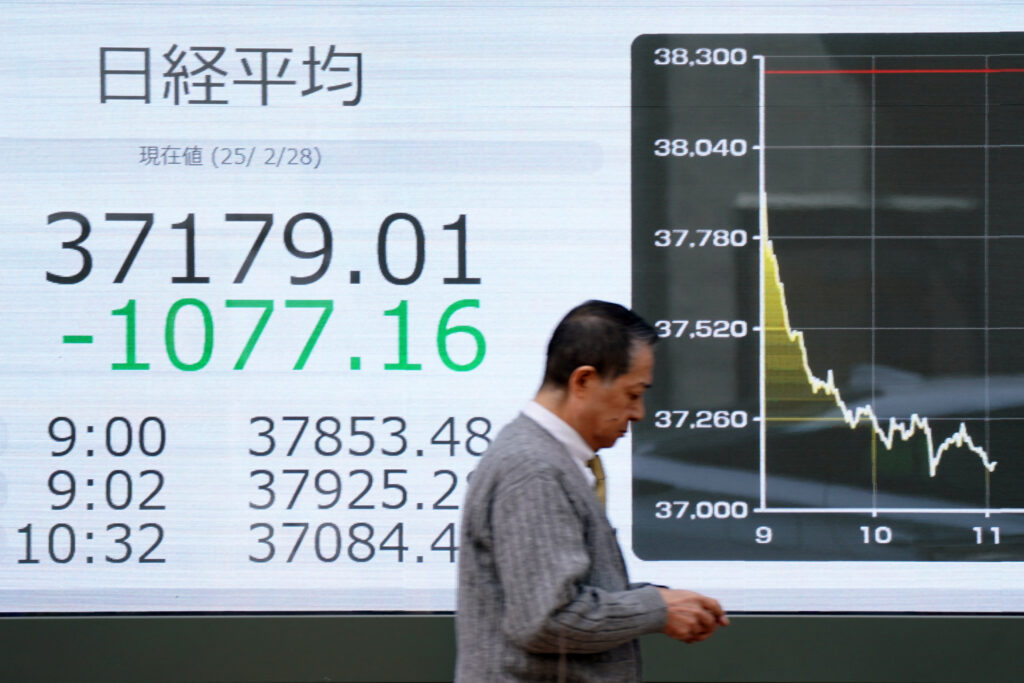
- ARAB NEWS
- 31 Jul 2025

Japanese investors made big purchasers of foreign bonds in the week through March 1, capitalising on the relatively high yields overseas, with additional support from a strengthening yen that makes foreign purchases more cost-effective.
They snapped up 1.51 trillion yen ($10.12 billion) worth of long-term foreign bonds in their largest weekly net purchase in three weeks, data from Japan’s Ministry of Finance showed.
The yen has strengthened approximately 4% this year, buoyed by expectations that the Bank of Japan will continue to hike interest rates amid robust inflation data and remarks from BOJ officials.
Meanwhile, Japanese investors pumped 626.9 billion yen into foreign equities last week, the biggest amount since August 24.
On the other hand, Japanese stocks suffered outflows worth 708.3 billion yen in their fifth consecutive week of net sales in the week ended March 1, driven by a sell-off in technology stocks. Investors were also worried about the outlook for Japanese exports amid a stronger yen, the U.S. economy and U.S. President Donald Trump’s tariff policies.
Japanese stocks lost about 2.8 trillion yen worth of foreign funds during these five weeks, compared with a net 7.15 trillion yen in outflows during a six-week-long selling streak in the quarter ended September 2024.
The Nikkei share average broke below its 200-day exponential moving average last week and hit a five and a half month low of 36816.16 on Tuesday.
Foreigners, however, bought a net 776.5 billion yen worth of long-term Japanese bonds, logging their sixth weekly net purchase in seven weeks. They sold about 730.2 billion yen worth of short-term bills.
Reuters